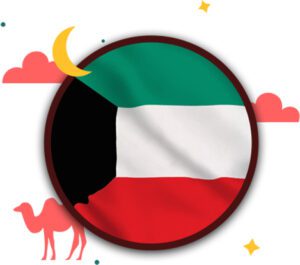Online gambling is entirely possible in several Arab countries despite the influence of strict cultural and legal norms. Some nations have adopted more lenient practices and have allowed limited access to gambling platforms under specific conditions. Others continue to enforce strict prohibitions without exceptions. Online gambling has emerged as a global phenomenon and has attracted millions of casino players who need entertainment, convenience, and the chance to win big. The industry has expanded across different countries with advancements in technology and widespread internet access. However, in some regions with strict legal frameworks, the acceptance and legality of online gambling remain debatable.
In most Arab countries, Islamic principles significantly shape cultural and legal systems, and gambling is generally regarded as impermissible. Certain exceptions, loopholes, or evolving regulations have created opportunities for online gambling in specific nations or under particular circumstances. The rise of technology has further complicated the enforcement of gambling bans as individuals increasingly turn to tools like VPNs and offshore platforms to bypass restrictions. These technologies often operate in legal grey areas and allow users to access gambling sites privately and with relative ease. Even though gambling laws remain strict in many parts of the region, it has become harder for authorities to monitor and regulate online activities.
The strict laws against gambling in Arab countries are closely tied to religious and cultural values, making their regulations significantly different from those in other parts of the world. In Islam, gambling is considered Haram due to its association with financial exploitation, social harm, and moral corruption. The Qur’an explicitly condemns gambling, describing it as a sinful practice that distracts from spiritual and personal responsibilities. Religious principles strongly influence anti-gambling legislation and make gambling activities restricted and heavily regulated across most of the Middle East. Arab countries enforce strict bans to uphold these religious principles and safeguard their cultural identity.
For many, gambling is not only a legal issue but also a moral one, tied closely to the preservation of social order. Some nations maintain absolute bans, but others recognize the financial potential and allow limited forms of gambling targeting tourists or expatriates. Regulated exceptions aim to minimise public exposure and prevent gambling from disrupting societal norms. The balance between maintaining cultural integrity and deriving income from controlled gambling reflects the challenges Arab countries face.
Gambling is generally prohibited across Arab countries due to cultural and religious principles, but the reality of online gambling is more complex. The rapid growth of the internet and digital payment systems has created opportunities for gambling platforms to reach online players across the region. Some nations have created specific legal frameworks for controlled gambling activities. Others maintain strict bans but struggle to enforce them as anonymous online activity becomes increasingly difficult to monitor.
Offshore websites and tools like VPNs have made it possible for players in Arab countries to bypass local restrictions and access online gambling platforms, even in places where gambling is explicitly outlawed. A VPN allows users to conceal their location by routing their connection through servers in other countries, making it appear as though they are accessing websites from regions where gambling is allowed. Other tools, such as proxy servers and encrypted browsers, also help anonymise internet activity and avoid detection. Many players also use cryptocurrency for deposits and withdrawals, as it provides anonymity and avoids scrutiny from local financial institutions. Most restrictions can be passed but come with significant risks, as governments actively monitor online activities and impose penalties for participating in online gambling.


The UAE enforces strict anti-gambling laws based on Islamic principles, which prohibit most forms of gambling. Dubai stands out as a unique case within the region and attracts global tourists with its modern infrastructure and liberal policies in certain areas. Traditional gambling remains illegal, but specific regulated activities, such as horse racing, lotteries, and raffles, are permitted under government oversight. The UAE’s lottery system is quite popular and offers big cash prizes through draws that are widely advertised and accessible to residents and tourists.
Offshore online gambling remains technically prohibited, but some residents and visitors discreetly use tools like VPNs to access international gambling platforms. The UAE is also soon set to open its first-ever casino resort, an MGM property, which marks a change in its gambling regulations. The resort will be part of a larger entertainment complex and will also bring legalised casino gaming to the country for the first time. It will position the UAE as a regional leader in regulated gambling while continuing to focus on its economic and tourism goals.


Saudi Arabia is one of the most conservative nations regarding gambling. The evolution of digital platforms and VPN technology allows some residents to bypass restrictions and access offshore gambling sites discreetly. Unlike countries with regulated gambling or tolerated exceptions, Saudi Arabia offers no legal framework, making all forms of gambling strictly prohibited. Enforcement focuses on public activities or visible operators and creates a legal grey area for private online participation. There is still a risk of severe penalties that makes gambling in Saudi Arabia far more precarious compared to nations with more lenient measures.


Tunisia is one of the more liberal Arab countries when it comes to gambling. The country has laws that permit both physical casinos and online gambling only under specific licenses. Residents can legally access certain international gambling platforms without facing the restrictions common in other Arab nations. What makes Tunisia unique is its relatively relaxed regulatory environment. Gambling there is moderately regulated and supported as part of its tourism-driven economy. Unlike countries with outright bans or highly restrictive measures, Tunisia allows gambling to exist with fewer barriers compared to the stricter laws seen in many neighbouring nations.


Qatar follows a conservative interpretation of Islamic law and bans all forms of gambling without exception. Yet, its global connections and a large expatriate population have made discreet online gambling possible. Offshore gambling websites can be accessed through VPNs, where users can bypass local restrictions and gamble privately. Qatar enforces strict laws, unlike other nations, but tends to focus on public activities rather than private online behaviour. Online gambling exists within a legal grey area, where discreet participation is possible but remains risky due to the lack of legal protection and the potential for severe penalties if discovered.


Kuwait enforces a strict ban on land-based gambling, but the legal status of online gambling is not clearly defined. The availability of VPNs and access to international casino websites has made it possible for residents to participate discreetly in online gambling. Kuwait has no legal provisions, but enforcement primarily targets public activities rather than private online behaviour. The lenient enforcement toward private users allows online gambling to persist quietly. It makes it more accessible compared to nations with stricter monitoring or harsher penalties for digital participation.


Bahrain has positioned itself as one of the more open nations in the region. Gambling laws strictly prohibit the activity under Islamic principles, yet some residents still find ways to access online gambling privately. Enforcement in Bahrain typically focuses on public gambling activities and leaves private online behaviour largely unmonitored. Stricter nations actively block access to gambling websites and impose severe penalties in comparison. Bahrain provides more opportunities for residents to access online gambling discreetly, even though it remains officially prohibited.
Welcome Offer:
155% Up to €800 + 250 Free Spins
Highlights:
Welcome Offer:
100% Up to €500 + 200 Free Spins
Highlights:
Welcome Offer:
100% Up to €500 + 200 Free Spins
Highlights:
Welcome Offer:
100% Up to €500 + 200 Free Spins
Highlights:
Welcome Offer:
Up to €2,500 + 300 Free Spins
Highlights:
Welcome Offer:
225% Up to €1,000
Highlights:
Welcome Offer:
155% Up to €800 + 250 Free Spins
Highlights:
Welcome Offer:
100% Up to €500 + 200 Free Spins
Highlights:
Welcome Offer:
100% Up to €500 + 200 Free Spins
Highlights:
Welcome Offer:
100% Up to €500 + 200 Free Spins
Highlights:
Online gambling is possible in several Arab countries through alternative methods of accessing restricted platforms, but it comes with certain challenges that players must consider. In countries where gambling is restricted or heavily regulated, accessing international platforms discreetly often becomes the only viable option. Gambling is possible even in strict environments, but players must proceed with caution. Without local regulation, there is a higher chance of encountering untrustworthy or scammy sites that may not pay winnings or safeguard personal information. Players should be aware of the risks associated with unregulated platforms and take steps to verify the legitimacy of the websites they use.
The lack of oversight means that unverified platforms can expose users to fraud, unpaid winnings, or compromised personal information. Players can gamble safely by using helpful tools like VPNs, choosing secure payment methods, and thoroughly researching trustworthy international platforms. Responsible practices, such as setting limits and avoiding overly risky sites, are also important for managing the challenges of gambling in an unregulated environment. Taking these precautions allows players to engage in online gambling as a possible and enjoyable activity, even in regions with restrictive laws.
The possibility of online gambling in Arab countries is gradually increasing and is influenced by technological advancements, global connectivity, and changing societal attitudes. Many nations in the region continue to enforce strict bans, but the accessibility of digital platforms has created opportunities for gambling that did not exist before. Some countries demonstrate how regulated markets can coexist with cultural and religious principles, which shows a potential path forward for other nations. As online gambling becomes more popular worldwide, the economic benefits of regulation, such as increased tourism revenue and better oversight, may encourage more Arab countries to reconsider their positions.
The current availability of online gambling in some Arab countries demonstrates that, despite restrictions, progress is possible. Building on these examples, future regulations could expand access while maintaining respect for cultural values. More nations could transition from limited access to secure, regulated platforms and bring today’s possibilities with tomorrow’s potential. In the future, governments in the region might explore licensing frameworks to guarantee player safety and regulate gambling activity responsibly. With the right policies, these frameworks could address restricted gambling while opening doors to secure and transparent platforms. Such changes could provide greater access to safe, regulated options for online gambling in Arab countries while respecting cultural values and accommodating modern developments.


Casino Expert